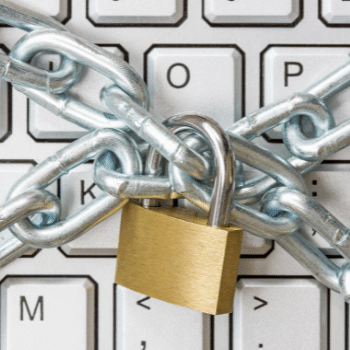World Day Against Cyber Censorship
 The Internet was created with very specific purposes: from its beginnings, with ARPANET, to the omniscient World Wide Web, its primary goal has always been to grant professionals, students, and researchers easy access to the documents of other scientists, making it easier to collaborate on a specific theme. However, it didn't take long for the world to realize that such technology had the potential of going much further.
The Internet was created with very specific purposes: from its beginnings, with ARPANET, to the omniscient World Wide Web, its primary goal has always been to grant professionals, students, and researchers easy access to the documents of other scientists, making it easier to collaborate on a specific theme. However, it didn't take long for the world to realize that such technology had the potential of going much further.
Today, according to the United Nations (UN), Internet access is already considered a fundamental human right: it facilitates the exercise of democracy by granting anyone quick access to information, such as having your voice heard and your point of view known, through a simple and effective form of mass communication. Unfortunately, the growing popularity of the web has also made cyber censorship increasingly more common.
Cyber censorship is any method used by governmental institutions to repress and restrict freedom of communication in the digital world, including, but not limited to, preventing citizens from being able to access certain websites (by blocking them with geographic filters), prohibiting the use of certain services (such as applications and other specific software), and also ordering the removal of a web page through a request made to the company responsible for hosting it.
These kinds of cyber censorship are often common in countries that adopt extremist policies, and censorship may be specifically targeted - such as the total "shutdown" of the internet to repress protests or to restrict media coverage of a specific fact – or be continuous. China, for example, is notorious for not allowing its citizens to access foreign news sites or platforms such as Facebook, Twitter, and Instagram: civilians can only use a specific intranet fed with government " approved" content.
More recently, in Myanmar, after a military-led coup d'état, the people of that country have been denied internet access. The Myanmar Army ordered the immediate blocking of all national providers, which prevented the use of communication applications such as WhatsApp. The intention was to “blind” the population to what was happening, preventing them from reacting violently to political maneuvers and only getting their news from the TV.
The "enemies of the web”
Cyber censorship is such a serious issue that March 12 is the World Day Against Cyber Censorship. The date was created by the non-profit organization Reporters Without Borders in 2009 to increase public awareness of the problem, and to create an index – which is updated annually - of countries considered "enemies" of the internet because of their continuous repression of free expression in the cyber world.
The "World Press Freedom Index 2020" (the most recent released by the NGO), ranks North Korea in last place (180th); and moving up in the ranking are Turkmenistan, Eritrea, China, Djibouti, and Vietnam. Brazil, for which fortunately no serious cases of cyber censorship have been registered, ranks 108th because of the hostile atmosphere against specialized press coverage, especially political.
In this regard, the World Day Against Cyber Censorship aims to remind all citizens of the importance of having a free and democratic Internet - as it was created -, in which it is possible to consume, produce, and disseminate content without suffering reprisals.
Article translated from: Dia Mundial Contra a Cibercensura: você sabe a importância desta data? — Perallis Security
